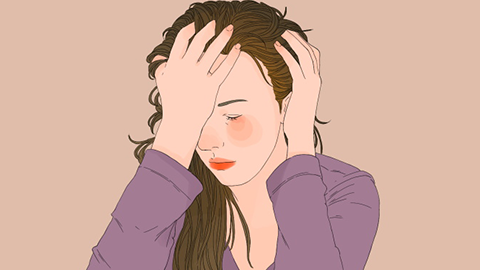How to regulate a damp-heat constitution
Generally speaking, a damp-heat constitution may be caused by factors such as long-term staying up late that consumes body fluids, lack of exercise leading to poor circulation of qi and blood, spleen-stomach damp-heat syndrome, liver-gallbladder damp-heat syndrome, and bladder damp-heat syndrome. It is recommended to seek timely medical consultation to identify the specific cause and then improve the condition under a physician's guidance through lifestyle adjustments, medication, and other methods. Detailed explanations are as follows:

1. Long-term staying up late consuming body fluids: Nighttime is a critical period for bodily metabolism and fluid recovery. Long-term late nights disrupt metabolic rhythms, leading to depletion of body fluids and abnormal transportation and transformation of dampness, which then generates damp-heat. Symptoms often include dry mouth and a yellow, greasy tongue coating. Going to bed before 11 PM daily and ensuring 7–8 hours of sleep can promote fluid recovery and metabolism.
2. Lack of exercise causing qi and blood stagnation: Prolonged physical inactivity impedes circulation of qi and blood, preventing normal elimination of dampness from the body. Accumulated dampness generates internal damp-heat, often manifesting as bodily heaviness and fatigue. Engaging in exercise 3–5 times per week for about 30 minutes each session—such as brisk walking, jogging, or yoga—can promote circulation of qi and blood and aid in the elimination of dampness.
3. Spleen-stomach damp-heat syndrome: Consumption of greasy and spicy foods or overeating increases the burden on the spleen and stomach, impairing the transformation and transportation of dampness, which then stagnates and generates heat. Symptoms include bloating, bitter taste in the mouth, and sticky, difficult bowel movements. Patients should follow medical advice to use medications such as Huoxiang Qingwei Capsules, Gegen Qinlian Tablets, or Xiangsha Yangwei Pills for regulation.
4. Liver-gallbladder damp-heat syndrome: Long-term alcohol consumption, emotional depression, or exposure to external damp-heat pathogens can impair the liver and gallbladder's function of free coursing, leading to accumulation of damp-heat in these organs. Symptoms include distending pain in the rib area, jaundice, and dark, scanty urine. Patients should follow medical advice to use medications such as Longdan Xiegan Pills, Yin Zhi Huang Oral Liquid, or Xiaoyan Lidan Tablets for treatment.
5. Bladder damp-heat syndrome: Exposure to external damp-heat pathogens or dietary irregularities can generate damp-heat that descends to the bladder, impairing its transformation and transportation function. Symptoms include frequent urination, urgency, painful urination, and yellow or reddish urine. Patients should follow medical advice to use formulas such as Bāzhèng Héjì (Eight-Principle Combination), Sānjīn Piàn (Three-Gold Tablets), or Rèlín Qīng Kèlì (Heat-Dampness Clearing Granules) to clear heat, resolve dampness, and promote urination.
In daily life, alcohol consumption and consumption of sweet, greasy, or spicy foods should be avoided. More dampness-heat-clearing and diuretic foods such as wax gourd (winter melon), coix seed (Yi Yi Ren), and mung beans should be consumed. Maintaining a regular schedule and engaging in moderate physical activity are also important. Additionally, emotional regulation is essential; prolonged states of tension and anxiety should be avoided. A comprehensive approach involving lifestyle adjustments can help improve a damp-heat constitution and maintain stable bodily function.







